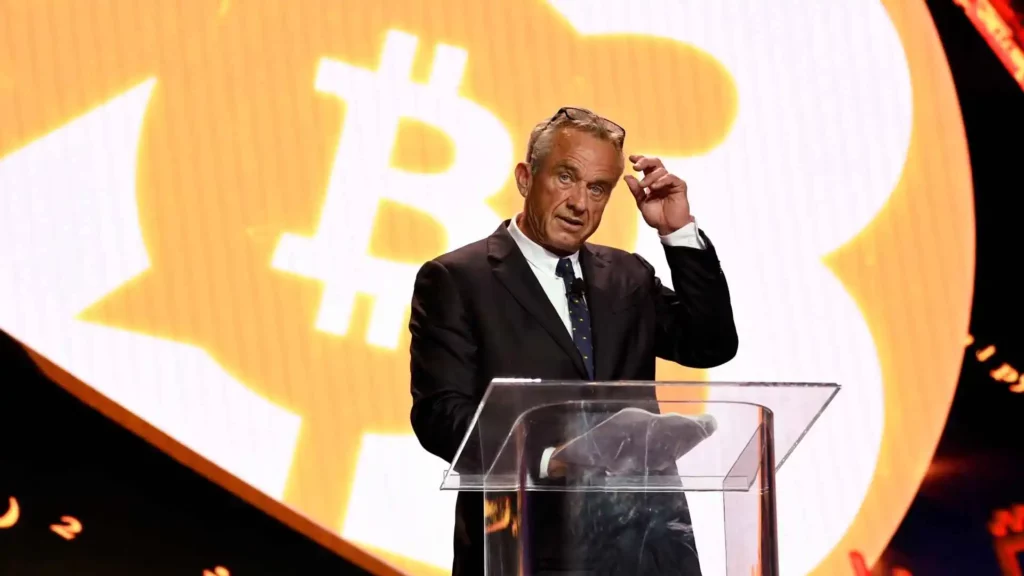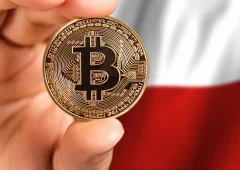Robert Kennedy Jr. Hails Bitcoin as a Hedge Against Inflation and Debt
18.11.2024 16:00 2 min. read Kosta Gushterov
Robert F. Kennedy Jr., often referred to as RFK Jr., has made headlines with his enthusiastic support for Bitcoin, describing it as the "currency of freedom."
His remarks came as he backed Howard Lutnick, CEO of Cantor Fitzgerald, for the role of U.S. Treasury Secretary under President-elect Donald Trump. RFK Jr., nominated by Trump to lead the Department of Health and Human Services, has long been a vocal Bitcoin advocate.
Kennedy highlighted Bitcoin’s value as a safeguard against inflation and a solution to economic challenges. He referred to it as a means for middle-class Americans to counter the declining value of the U.S. dollar and navigate the nation’s mounting debt. He has consistently praised the cryptocurrency as a tool for financial independence and a buffer against traditional monetary instability.
Kennedy also expressed confidence in Howard Lutnick’s potential to champion Bitcoin-friendly policies if appointed Treasury Secretary. The ongoing debate over Trump’s choice for the role has seen varying predictions, with Polymarket data showing Lutnick’s chances rising to 34%, just behind Scott Bessent at 38%.
Additionally, RFK Jr. has previously called for the U.S. to establish a strategic Bitcoin reserve as part of a broader plan to address the national debt crisis. As a long-time Bitcoin investor, he aligns with similar proposals from international leaders like Poland’s presidential candidate Slawomir Mentzen, who has also endorsed the idea of national Bitcoin reserves.
-
1
What’s The Real Reason Behind Bitcoin’s Surge? Analyst Company Explains
12.07.2025 12:00 2 min. read -
2
Bitcoin Reaches New All-Time High Above $116,000
11.07.2025 7:56 1 min. read -
3
Peter Schiff Warns of Dollar Collapse, Questions Bitcoin Scarcity Model
12.07.2025 20:00 1 min. read -
4
Canadian Bank Sees Bitcoin Hitting $155,000 by 2025
15.07.2025 10:00 1 min. read -
5
Strategy Claims It Can Weather a Bitcoin Crash to $20K Without Trouble
16.07.2025 14:08 1 min. read
Bitcoin Risk Cycle Flips Again as Market Enters Safer Zone
Bitcoin’s market signal has officially shifted back into a low-risk phase, according to a new chart shared by Bitcoin Vector in collaboration with Glassnode and Swissblock.
Robert Kiyosaki Warns of 1929-Style Crash, Urges Bitcoin Hedge
Financial author Robert Kiyosaki is once again sounding the alarm on America’s economic health.
Metaplanet Adds $92.5M in Bitcoin, Surpasses 17,000 BTC Holdings
Metaplanet Inc., a Tokyo-listed company, has just added 780 more Bitcoin to its treasury. The purchase, announced on July 28, cost around ¥13.666 billion or $92.5 million, with an average price of $118,622 per BTC.
China and U.S. Plan Trade Truce Extension Before Talks: How It Can Affect Bitcoin
The United States and China are expected to extend their trade truce by 90 days. The extension would delay new tariffs and create space for fresh negotiations in Stockholm.
-
1
What’s The Real Reason Behind Bitcoin’s Surge? Analyst Company Explains
12.07.2025 12:00 2 min. read -
2
Bitcoin Reaches New All-Time High Above $116,000
11.07.2025 7:56 1 min. read -
3
Peter Schiff Warns of Dollar Collapse, Questions Bitcoin Scarcity Model
12.07.2025 20:00 1 min. read -
4
Canadian Bank Sees Bitcoin Hitting $155,000 by 2025
15.07.2025 10:00 1 min. read -
5
Strategy Claims It Can Weather a Bitcoin Crash to $20K Without Trouble
16.07.2025 14:08 1 min. read


